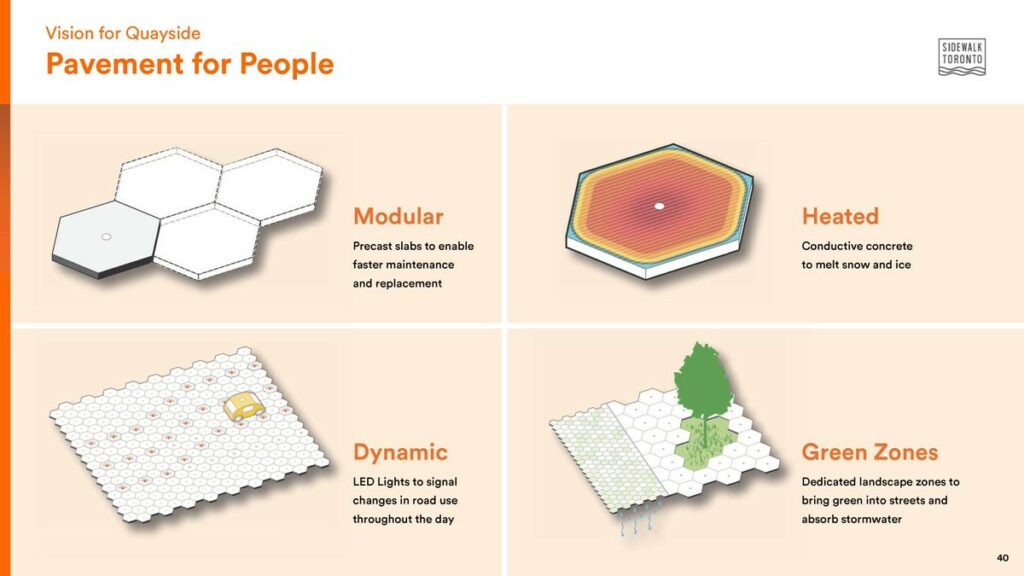Freebike Limited is a company incorporated in England and Wales. Company ID: 11624790, VAT ID: 313033657
Registered office: Waterston House, Dorchester, DT2 7SP, United Kingdom
© 2020 All Rights Reserved. Designed by Obscural.

Modular Pavement is a dynamic form of road with easily reconfigurable pieces of roadway. Their hexagonal shape makes them stronger (a honeycomb-like effect) and helps them fit together nicely. As a testament to their durability, one road in France hasn’t received any maintenance in 10 years, and the pavers still look brand new. The low-maintenance and high-adaptability, offers substantial cost savings to traditional forms of road, like asphalt.

Permeability. The static nature of traditional roads has a major impact on the environment too. They divert water away from ecosystems and play a major role in increased flooding because the water has no where to go. Modular pavement has holes in each slab so water can be absorbed by the earth below, and features such as trees, can be easily planted by simply removing a slab. Additionally, new road technologies can be integrated without having to rip up old asphalt. The days of being forced to use with 200 year old road technologies are over.
Lights. One-ways, cycle lanes or pedestrian lanes can pop up at the flip of a switch. This is fantastic for tactical urbanism implementation to quickly adapt to current events such as a city parade or pandemic.
Smarter, more effective roads are a fundamental piece to bring Smart Cities to fruition. Adaptable roads will reduce congestion, and better durability will remove another obstacle cyclists face on the road. The indirect costs of static roads are crippling cities. Why wouldn’t we choose a cheaper, more effective option?